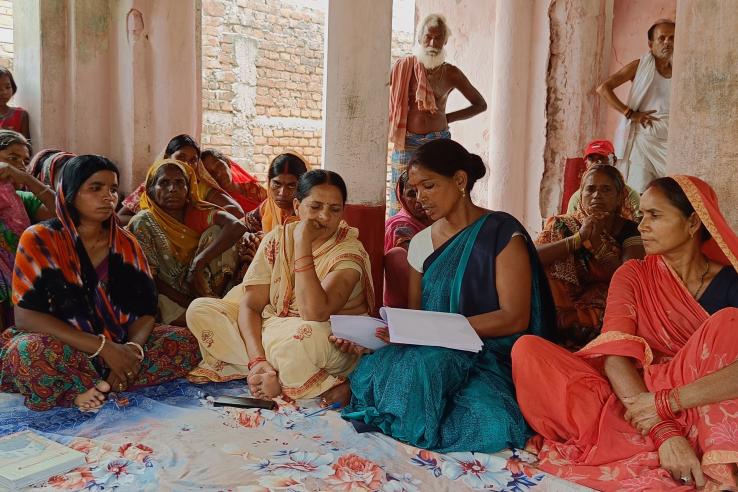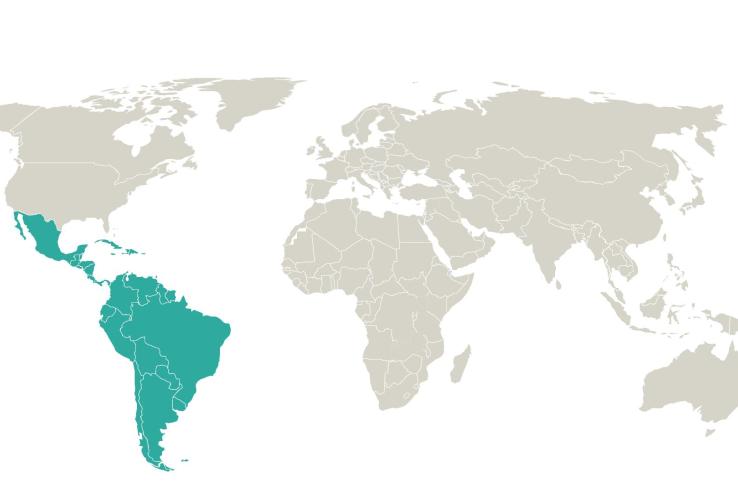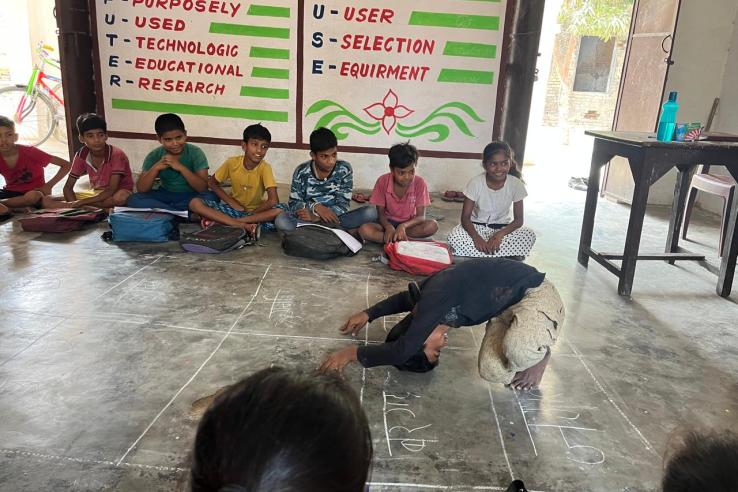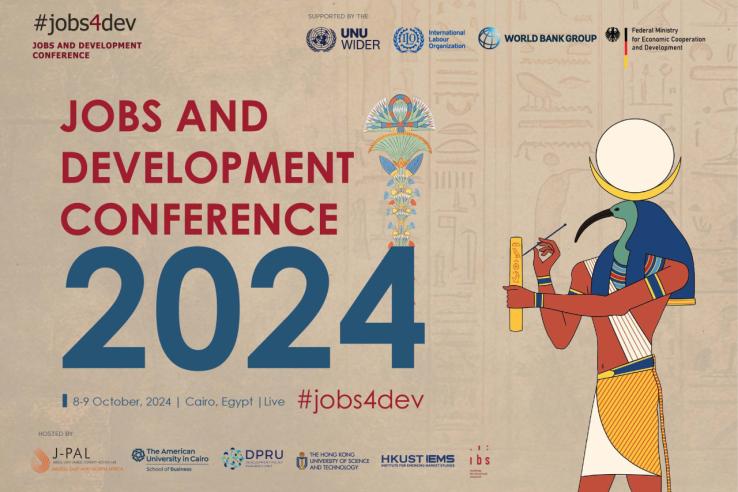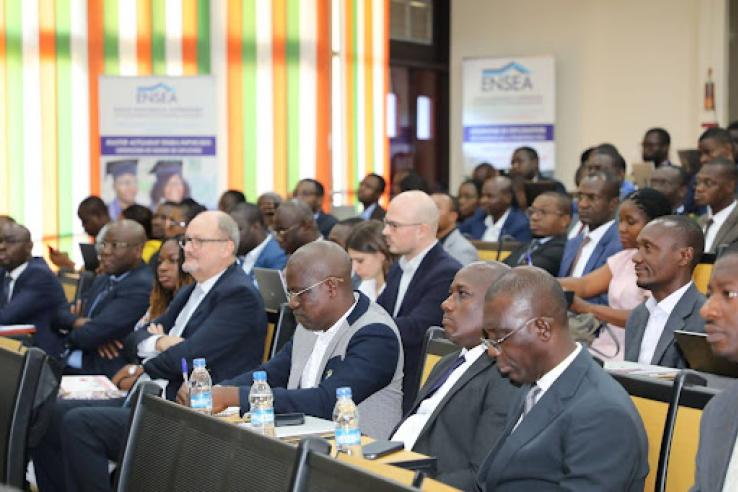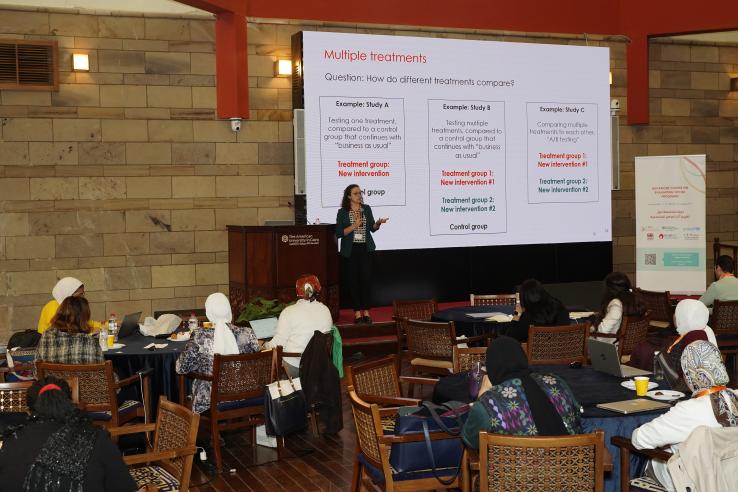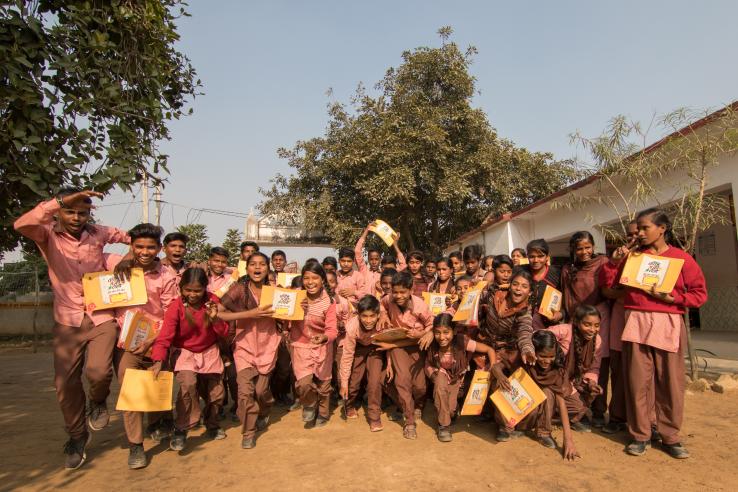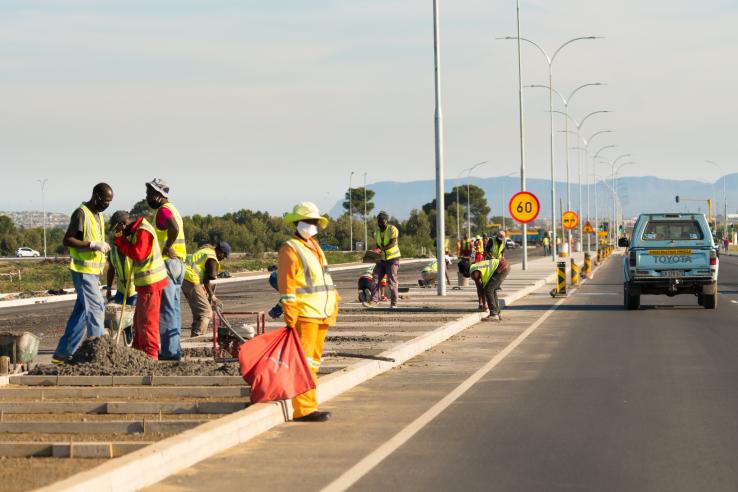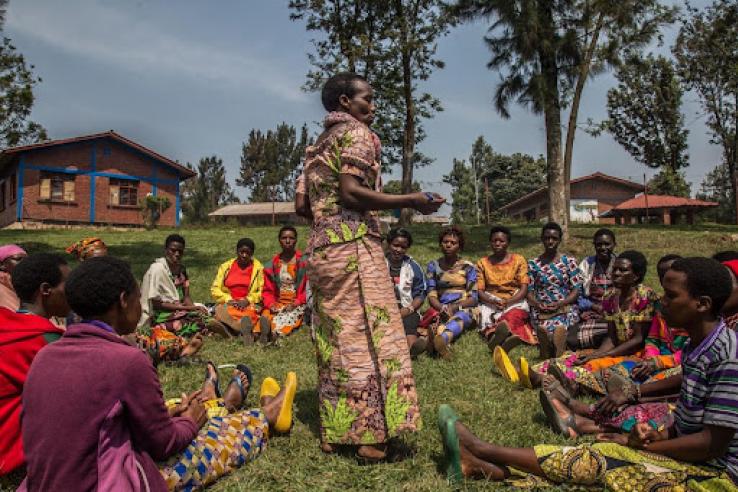Displaying 3136 - 3150 of 8491
Blog
A cadre of 5,000 Master Resource Persons (MRPs) has been working in the Indian state of Bihar to implement the Government of Bihar’s Satat Jeevikoparjan Yojana (SJY), an adaptation of the Graduation Approach.
Blog
J-PAL LAC was established in the Institute of Economics (IE) of UC Chile in 2009. Since then, J-PAL LAC’s expansion to more countries in the region has been largely thanks to our donors. Learn about some of our most recent partnerships with them.
Blog
The world has made tremendous progress in getting children into schools. Not so much in making them learn. In India, which has one of the biggest school systems in the world, nearly every eligible child receives primary education. But almost half of 10-year-olds struggle to read a simple story by...
Blog
In a new working paper, J-PAL affiliated researchers Jason Kerwin and Olivier Sterck, and J-PAL alumna Nada Rostom demonstrate how standard balance tests used in randomized evaluations indicate imbalance too often.
Event
The 2024 Jobs and Development Conference (#Jobs4Dev) will be held on October 8-9 in Cairo, Egypt, hosted by J-PAL MENA at AUC. The conference is organized in partnership with the World Bank, ILO, UNU-WIDER, and other global research institutes, with support from BMZ and GIZ.
Resource
Layout Page
Event
J-PAL and ENSEA are hosting a collloquium in Abidjan, Côte d’Ivoire to graduate the first set of civil servants from their civil servant's training prorgam and officially welcome ENSEA into the Alliance for Data, Evaluation, and Policy Training (ADEPT).
Blog
This post is part of our ongoing series showcasing the work and perspectives of economists from the African continent who are leading randomized evaluations. Through our African Scholars Program, we hope to help create more opportunities for African researchers to advance the research agenda on the...
Event
The Advanced Course on Evaluating Social Programs aims to strengthen the evidence generation ecosystem among local and regional researchers in MENA and African countries. It will gather 42 participants from across Egypt, Lebanon, Algeria, Kenya and Nigeria, to provide a platform for knowledge...
Evidence to Policy Case Study
Case study
In India, the state governments of Punjab and Odisha are scaling up an evidence-based gender transformative education program in government schools with the NGO Breakthrough, reaching 4 million students across both states by 2026.
Event
As the inaugural session of J-PAL Latin America and the Caribbean's “Early Work Seminars,” this event will focus on labor markets and provide an academic forum where researchers can present their early work in randomized evaluations, and receive valuable feedback from scholars within the J-PAL LAC...
Resource
Basic page
We always knew that we wanted J-PAL South Asia to be an inclusive and caring workplace, where creativity flourishes and everyone is treated with respect and dignity. Our vision gradually developed into a set of moral codes as we grew from being a motley group of researchers to an organization with...
Policy insight
Public works programs in low- and middle-income countries provide short-term employment and earnings boosts to participants. These programs usually do not lead to lasting labor market benefits when measured several years after implementation, though they often generate lasting effects on asset...
Event
Please join our CVI Scholars Program information webinar on August 15 at 9 am ET, during which we will outline CVI’s scope and Request for Proposals (RFP) timelines, Scholars Program details, and best practices for applying for funding from CVI.
Blog
The Bay Area Evaluation community of practice is committed to supporting rigorously designed evaluations; implementing constituent-centered programs; sharing knowledge and stories; and informing housing policy in the San Francisco Bay Area and beyond.
